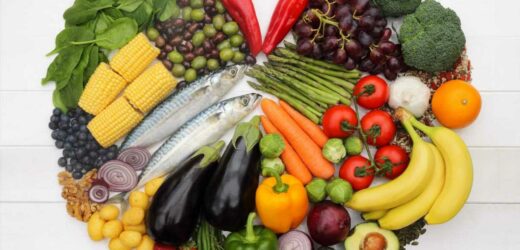PEOPLE try and lose weight for a variety of reasons and it can be tough.
Keeping our weight in check helps with our overall health and wellbeing and prevents us from developing other issues such as type 2 diabetes and heart disease.
Obesity is a huge issue in the UK and around two-thirds of adults are above a healthy weight, and of these, half are obese.
One expert has revealed how you can kick start your weight loss journey with delicious foods that will help you blast belly fat.
Getting rid of belly fat, or visceral fat is key to wellbeing.
Dr Michael Mosley, creator of the Fast 800 and 5:2 diets said low-carbohydrate and high protein diets are a great place to start.
Read more on weight loss
It's important that if you are starting any new type of diet plan that you consult your GP.
As part of his diet plan, Dr Mosley said that adults should consume at least 60g of protein a day.
If you're trying to lose weight then Dr Mosley said you should consider upping your intake.
The NHS says that proteins such as meat, eggs, fish and pulses are all good sources of protein and are essential for the body to grow and repair itself.
Most read in Diet & Fitness
WEIGH HEY What is the sipping diet that helped Robert Pattinson get in shape for Batman?
I was so addicted to Lucozade I drank 15 LITRES a day – it ruined my marriage
I'm on a sex diet to stay in shape – it's the same as an hour on the treadmill
The simple test you can do at home to discover if you're too fat
For example a medium egg contains about 13g of protein, with a 100g chicken breast containing 31g.
Dr Mosley said that people who eat less than 60g of protein a day could be harming their metabolic rate.
Your metabolic rate is key for weight loss as it is the number of calories you burn as your body performs basic life-sustaining function.
He explained: "Your body will cannibalise your muscles and your metabolic rate will go down."
As well as making sure you're getting enough protein in your diet, Dr Mosley is an advocate of the Mediterranean-style diet.
This diet focusses on foods which are good for you, and low in foods that have a high sugar content.
The NHS explains: “The Mediterranean diet varies by country and region, so it has a range of definitions.
The best ways to treat obesity
If you’re worried about your weight then the NHS says there are some steps you can take to help your health and wellbeing.
- eat a calorie-controlled diet and get help from your GP or a dietician
- join a local weight loss group
- take up activities such as swimming, walking or jogging. You should do 150 minutes to 300 minutes a week – which equates to 2.5 to five hours a week
“But in general, it's high in vegetables, fruits, legumes, nuts, beans, cereals, grains, fish, and unsaturated fats such as olive oil.
“It usually includes a low intake of meat and dairy foods.”
Dr Mosley said: "The availability, and low price, of modern day industrially processed foods is most commonly the reason so many suffer with type 2 diabetes, joint problems, sleep apnoea and so much more.
"Not only this, visceral fat puts heavy strain on organs and if it’s not combated, can lead to very dangerous consequences.
"A Mediterranean-style diet can change this without feeling like a diet you commonly want to break away from."
Studies have shown that the Mediterranean diet can help you lose weight and lower cholesterol levels.
It can also help reverse or reduce your risk of type 2 diabetes and help fight heart disease and strokes.
Read More on The Sun
As with any diet, it's important you don't fully cut out any one food group as each food group give our body beneficial nutrients.
The NHS says if you need to lose weight, 1-2lbs per week is safe. You should be able to lose this amount if you eat and drink around 500 to 600 calories fewer than you need.
We pay for your stories!
Do you have a story for The Sun news desk?
Email us at [email protected] or call 0207 782 4104. You can WhatsApp us on 07423 720 250. We pay for videos too. Click here to upload yours
Click here to get The Sun newspaper delivered for FREE for the next six weeks.
Source: Read Full Article











